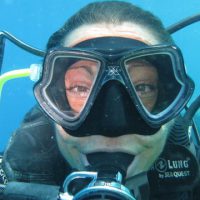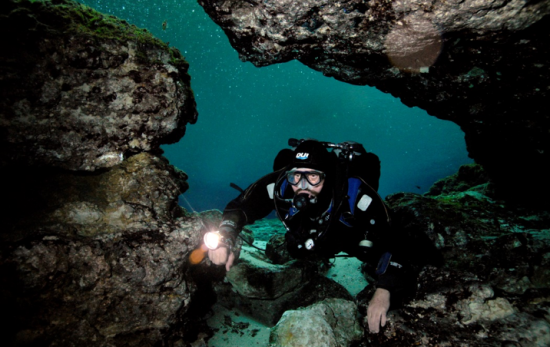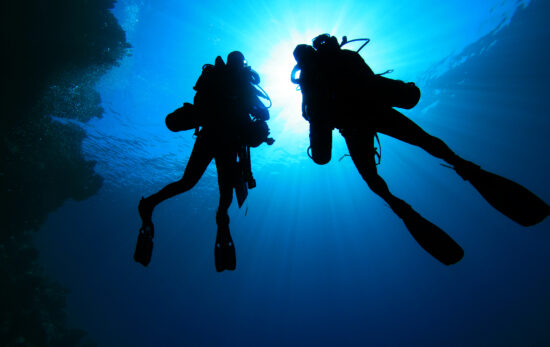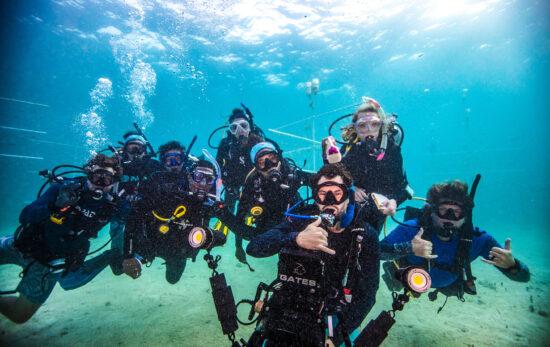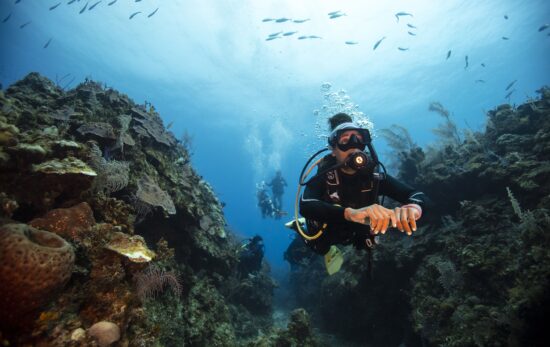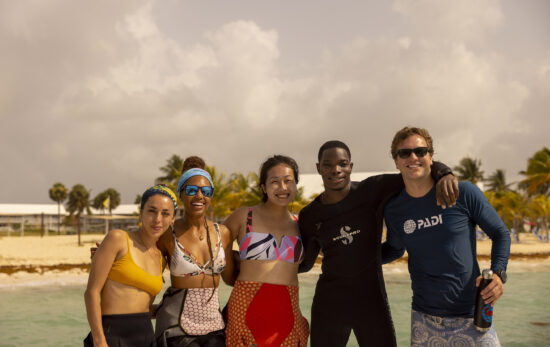As PADI Woman’s Day approaches, we have been reaching out to some of our leading women PADI Pros to discuss diversity and inclusion in diving. Julia Alberione was immediately on our radar as one of only relatively few women PADI Tec Instructors from around the world. Check out our interview with Julia here…
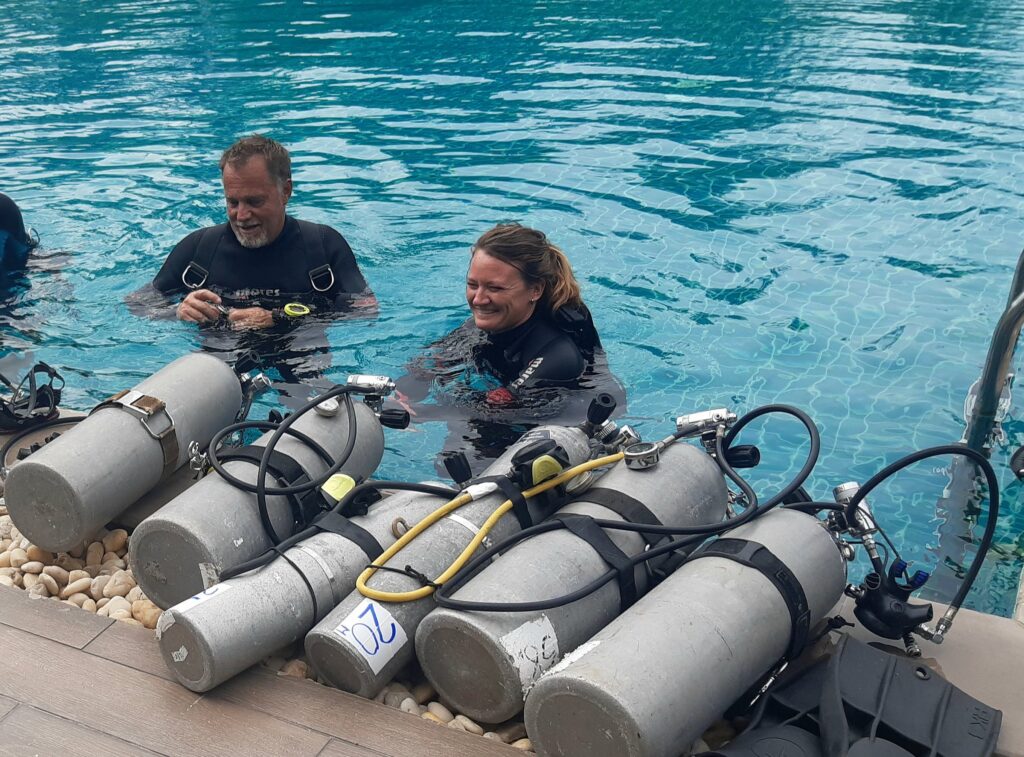
How Did You First Get Started in Scuba Diving and What Made You Decide to Become a PADI Pro?
Julia: I did my first dive when I was 14 years old with my dad and sister. We were on holiday in Porto Seguro, in the North of Brazil. My Father is a fish and coral lover so I grew up in a house with 5 aquariums and I learned to love marine life – although, these days I prefer to see marine life in its natural environment. When I was 20, I was lucky to work in a diving centre for a whole summer season (in the south of Brazil, where I did my first courses). Unfortunately life took me in a different direction, and I studied Accountancy at university. I finished my youth submerging myself in numbers, audits accounts and the business world, but I never forgot that amazing summer I had doing what I loved. One day I decided to go for my dream, I quit my job and started traveling.
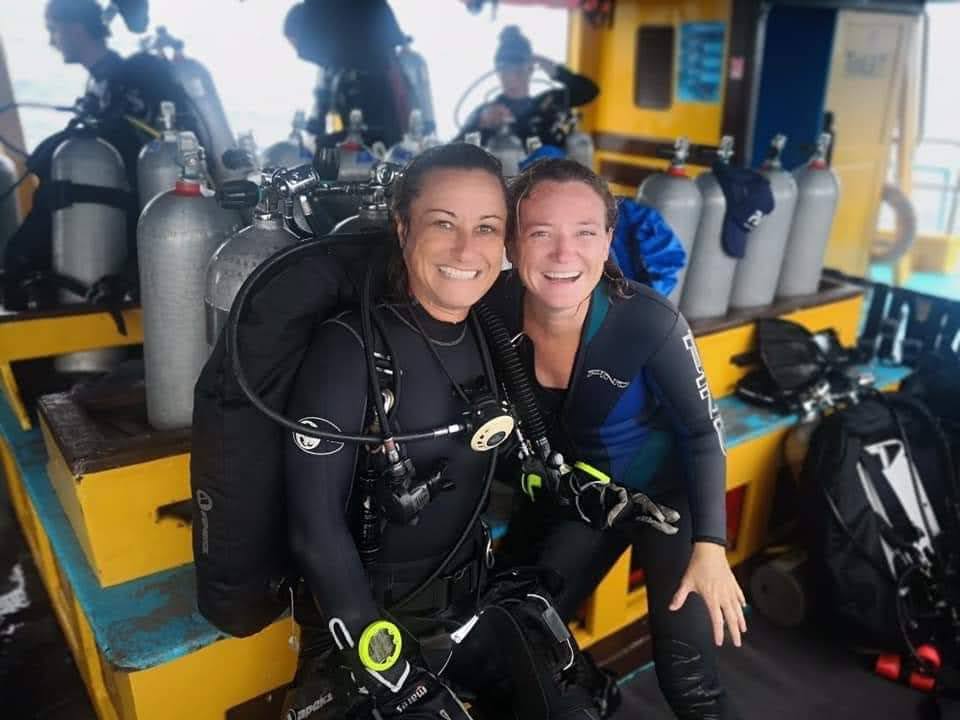
How Did You Get Involved in Technical Diving?
Julia: After some years of teaching, my attention was drawn to the adventures that technical diving offers. But like a lot of my female colleagues, I was put off a little by the male-dominated, testosterone-driven image of the technical diving world. Encouraged by my partner, I tentatively entered the world of tech diving, completing courses and gaining experience.
What Is It That Draws You to Technical Diving?
Julia: As I progressed, I began to benefit from the new sense of freedom, diving beyond the limitations of no decompression. The deeper shipwrecks and all the last moments of their stories began to reveal themselves, enticing me farther and farther along the technical diving path, qualifying on the AP Evolution re-breather allowed me to explore. I reinforced the understanding that in technical diving, the muscle that is the mind plays a more critical role than mere brute strength.
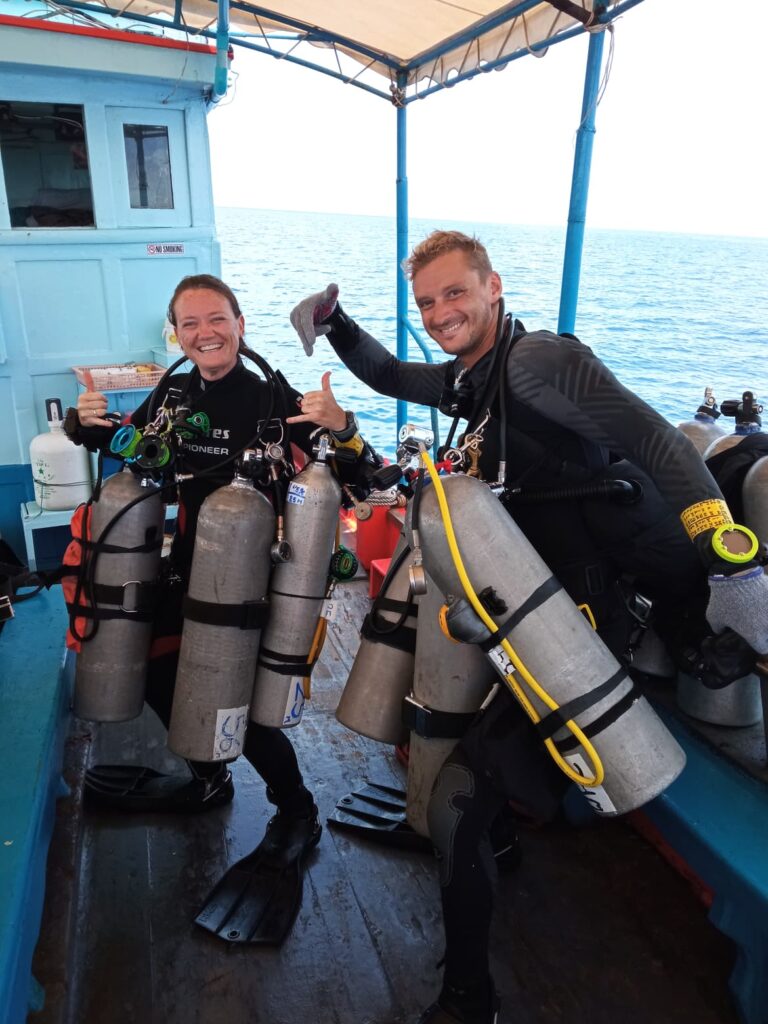
Are There Any Benefits of Being a Women in the Technical Diving World?
Julia: Yes, as I progressed I found I could reduce the weight burden. Given my petite frame and subsequent lower SAC rate, I could reduce the size of my tanks when gas matching, this advantage eliminated to a large extent the fear of struggling to stand on a moving slippery deck, weighed down with four s80 tanks.
What Has Been Your Biggest Challenge In Your Journey to Becoming a PADI Pro and How Did You Overcome It?
Julia: I think the hardest challenge was being away from my family. I am from Argentina, from the middle of the country where the sea is thousands of kilometres away. So I had to get out of my comfort zone and away from my loved ones. I’m lucky to have a family that supports me at a distance and nowadays communication is very easy. Another big challenge was the language, I’m not a native English speaker, but I understood that if I wanted to progress, I had to make an effort to improve my English, my first courses that I taught were super programmed, I practiced at home in front of a mirror and with friends what I had to say to gain confidence. I was terrified but not of teaching people how dive, but to do it in other language. But I pushed myself and English is not a barrier any more.
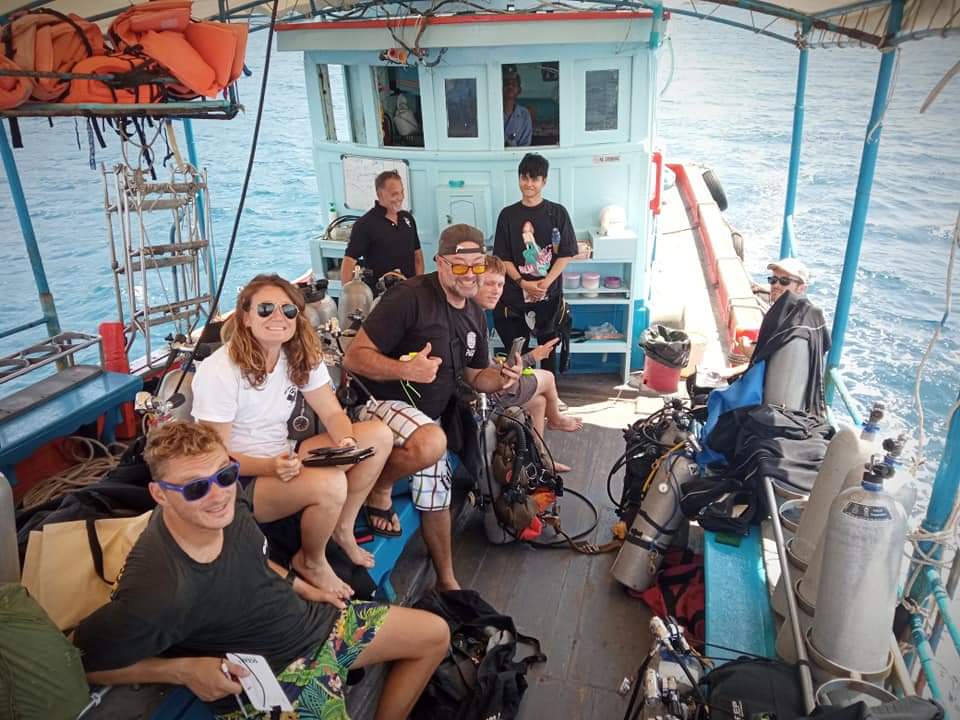
Are Your Technical Students Ever Surprised When They Realise They Will Have a Female Instructor?
Julia: Yes, my frame is small, and sometimes the men I am teaching are surprised that a slight woman of 1.62 m (5 ft 3 in) height and 49 kg (108 pounds) weight, have the responsibility for teaching much bigger members of the opposite sex. But any uncertainty quickly disappears as we enter the pool and the importance of good technique overrides the disadvantage weight and size give me.
How Do Your Male Technical Diving Colleagues Respond to Having a Women on What’s Often a Male Dominated Team?
Julia: To my surprise, my male colleagues have been overwhelmingly supportive. And at the time of writing, I am being invited more and more to join technical diving expeditions, not as the token woman but as a valued member of the team, that brings with her also all the positive aspects that female intuition brings to any sport.
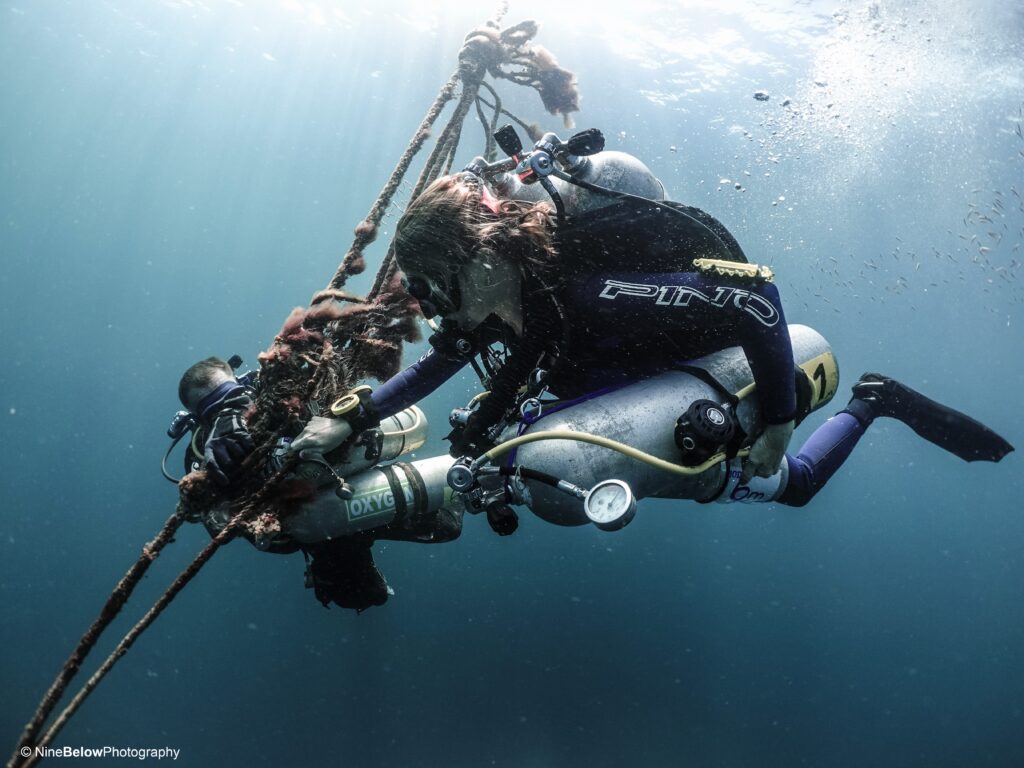
What Are Your Technical Diving Career Plans for the Future?
Julia: I just became a PADI Tech Deep Instructor and I am a CCR diver. I love exploring, so I am practicing and learning new techniques every day, not only to improve but to be safer underwater. This is especially important on expeditions in search of new shipwrecks far away from mainland (at the moment in the Gulf of Thailand, but I want to go further of the limits of this country).
I wish there were more women involved with whom to share these expeditions so I think my great goal is to share with more women my fascination for underwater exploration and teach them the necessary techniques to be safe.
What Advice Do You Have For Other Women Who Are Thinking About Getting Started in Technical Diving?
Julia: To any women out there thinking of venturing into Technical Diving, I say get involved! Give all the benefits that women bring, to understand the sea and our history in it.
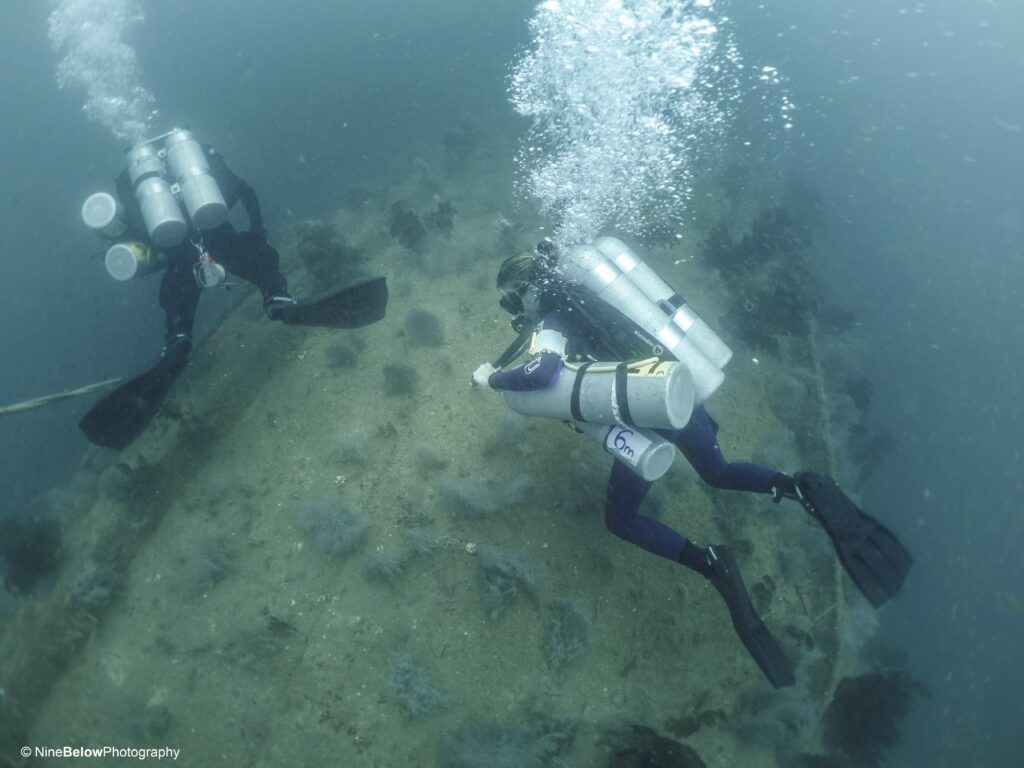
Want to become a Technical Diver like Julia? Learn more about PADI Technical Diving courses and contact your local PADI TecRec Center.
